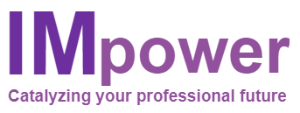Resident Career Counseling, Guidance and Tips
Training and Certification
- Tips for Residency:
- Preparing for Board Certification

Offering non-clinical tools and resources expertly crafted to support residents during their training and catalyze their professional future. Exclusive to ACP Resident members.
Internal Medicine Practice and Career Options
- General Internal Medicine
- Hospital Medicine
- Subspecialty Careers
- Fellowship Training Requirements
- Medical Practice Types
- Part-time Practice
Searching for the Right Medical Career Opportunity
- I.M. Career Path Quiz Member login required
- The Four Questions to Consider When Planning Your Internal Medicine Career
- Planning a Career Strategy
- ACP Career Connection job bank
Marketing Yourself
- Make Yourself More Marketable
- How to Write a Resume, Curriculum Vitae, and Cover Letter
- Soliciting Letters of Recommendation
- Interview Tips
- International Medical Graduate Resources and Opportunities
- Career Advice Videos
The Contract, Compensation, and Malpractice Insurance
- Malpractice Insurance
- Understanding Capitation
- Pay-for-performance programs
- Medicare Financing and Payments

